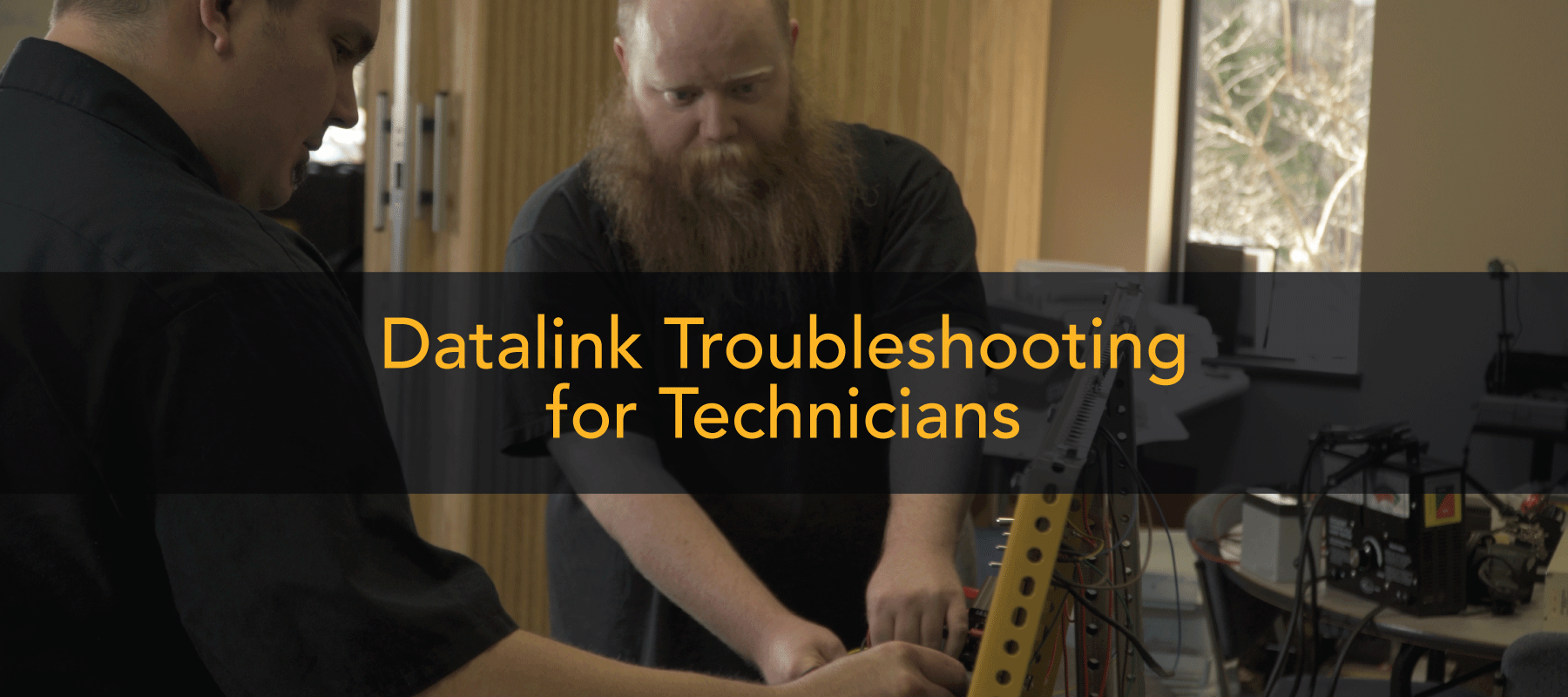
Datalink Troubleshooting for Technicians (New Class)
Understanding datalink systems is essential to the diagnostic process of heavy-duty and medium-duty vehicles. Modules such as the ECM, TCM, body controllers found in most vehicles manufactured in the past 20 years are connected through datalink systems that require specific types of diagnostic procedures. Our Training Department has been hard at work developing a brand new in-person class: Datalink J1939/J1708 Troubleshooting for Technicians so you can learn all about these procedures!
Note: We highly recommend students attend our Electrical Diagnostics I course beforehand. Skills in Datalink Troubleshooting for Technicians will be reliant on electrical diagnostic skills that are taught in the Electrical Diagnostics I class.
About the Course
This is a full-day training class from 8 am - 5 pm with a one hour break for lunch. This class is designed to give technicians an overview of operation and how to diagnose faults and connection issues on heavy-duty/medium-duty datalink systems with both classroom and hands-on portions. Upon completion of the course, the students will receive reference material for further self-study and also a certificate of completion for the course.

Course Topics
- Datalink overview including vocabulary associated with datalink systems
- Identifying different datalink systems on today's vehicles
- Why datalink (multiplexing) is used on vehicles for module communication
- Different diagnostic connector types (6-Pin, 9-Pin, OBDII)
- 250k vs. 500k systems (black vs. green 9-Pin connector)
- Diagnosing J1939 and J1708 as well as CAN datalink systems
- Troubleshooting communication issues
- Setting source addresses so modules communicate correctly with one another
- When technicians can use an oscilloscope to aid in diagnostics of CAN systems

Note: The first offering of this course will be on June 19, 2020, at our Irmo, SC Headquarters. All students will undergo a mandatory temperature check before entering the classroom. Optional masks will also be provided to students.

Leave a comment